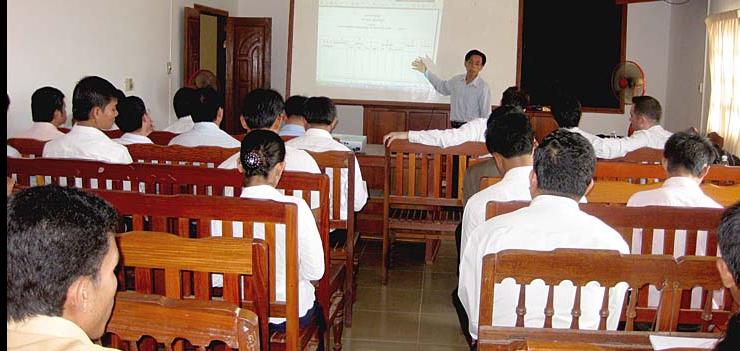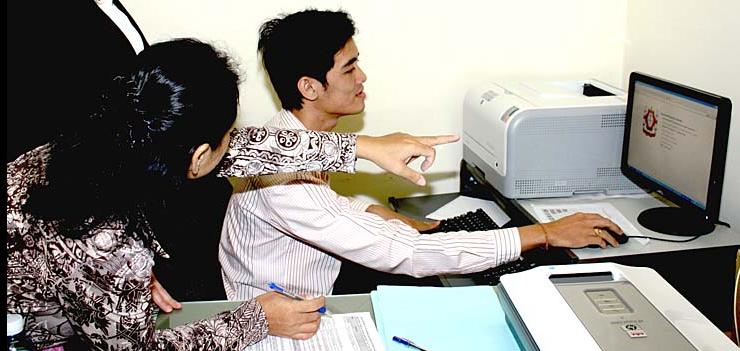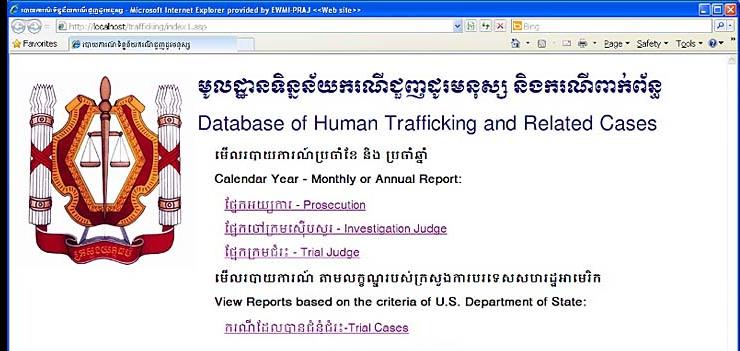In June 2010, the U.S. State Department recognized substantial progress in counter-trafficking in persons by the Royal Government of Cambodia, lifting the RGC from the Tier Two Watch List and citing the improved conviction data as a significant factor. Substantial EWMI activities in 2009 and 2010 were directed at this outcome – improved conviction data – and were undertaken in collaboration with the Ministry of Justice (MoJ), USAID, and the U.S. Embassy. These collaborative activities included: the creation of the MoJ Trafficking Database, hosting of the leading magistrates and clerks at a MoJ National Conference on Trafficking Data Collection, conducting a dozen field visits to courts nationwide to assist with data analysis, and regular (near daily) communication with the U.S. Embassy during the final weeks leading up to the TIP Report submission to document and deliberate over each conviction in close detail. All of these activities, in an intensive and complex six-month partnership, resulted in a marked increase in the quality and quantity of trafficking prosecution data and assisted in the final report to the State Department.
These data collection efforts would be useless if not for other justice sector improvements in policing and prosecution, but the data question itself was also a stumbling block in previous Cambodia TIP Reports. The 2008 Report cited data collection problems as a serious hindrance to counter-trafficking efforts: “Due to resource constraints, the government has not provided reliable statistics on prosecution.” Earlier, the 2007 Report echoed the same concerns: “It is possible that some of these statistics overlap as there is no consolidated data collection in Cambodia.” This year, however, there was no mention of prosecution data collection concerns, eliminating one of the perennial worries about RGC counter-trafficking efforts.
The new MoJ Trafficking-in-Persons Database was completed and fully operational in March of 2010. EWMI worked closely with the Ministry of Justice to develop the database, which tracks the case information of all prosecutions and convictions reported to the MoJ under the new Law on Suppression of Human Trafficking and Sexual Exploitation, and allows MoJ officials to search the status of cases through a variety of topics, including: province, case number, date, and statute article.



